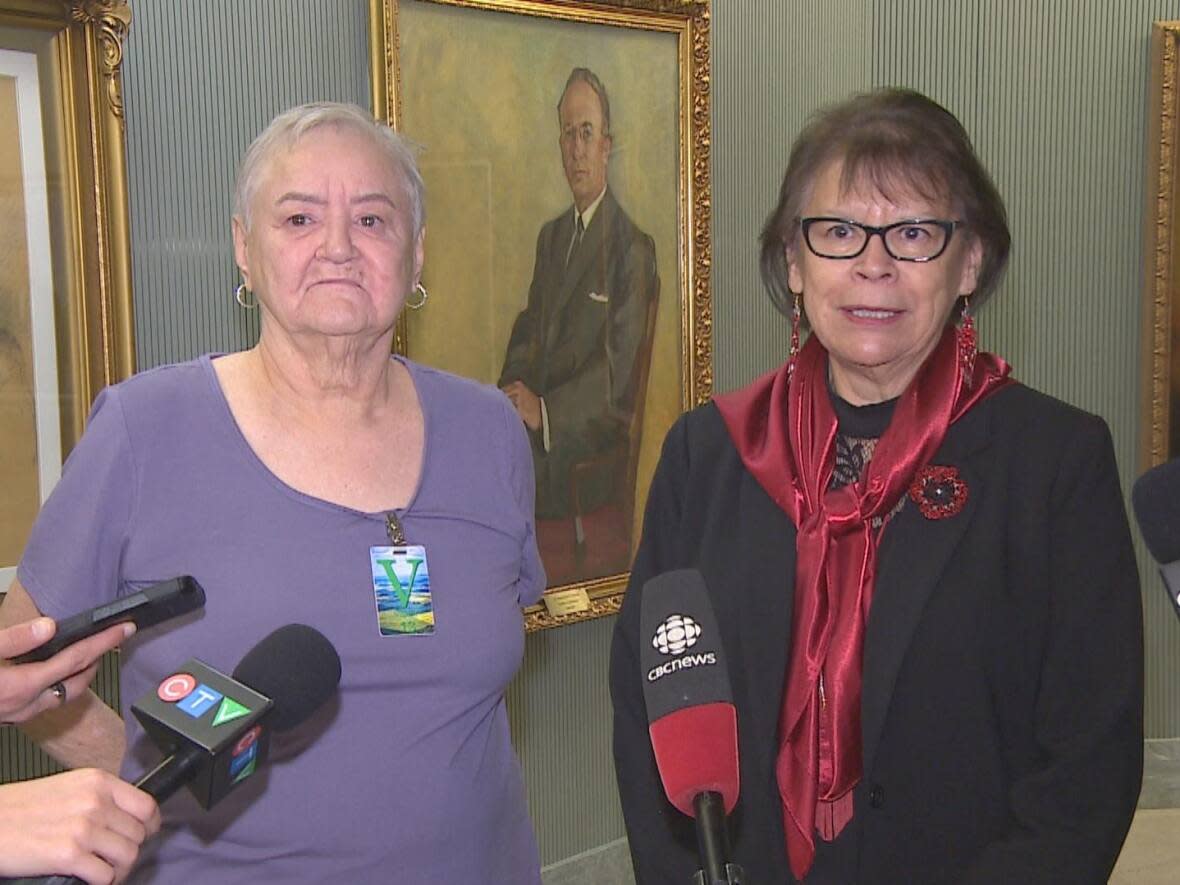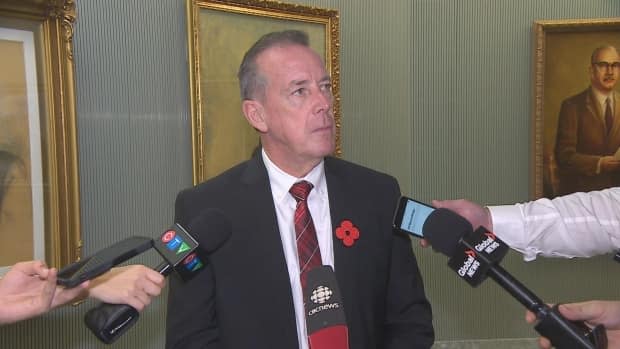Province puts $400K toward new MMIWG+ community response fund

Since Myrna LaPlante's aunt disappeared in 2007, the woman from Day Star First Nation has been speaking out about missing and murdered Indigenous women and girls (MMIWG) in Canada.
Her aunt Emily went missing from her home near the Kawacatoose First Nation, about 200 kilometres southeast of Saskatoon.
LaPlante, who also participated in the National Inquiry into MMIWG, was one of four Indigenous women — along with Marlene Bear, Lori Whiteman, and Autumn Larose-Smith — helping to develop the criteria for Saskatchewan's new Missing and Murdered Indigenous Women and Girls+ (MMIWG+) Community Response Fund.
The province is putting $400,000 into the new program for the 2022-23 fiscal year, with the money set aside to support at least 10 community projects.
Each of them can receive up to $40,000, the province said in a news release on Monday.
"I'm hoping that it will create awareness that will lead to prevention of this ongoing tragedy of missing and murdered Indigenous women and girls," said LaPlante.
"Speaking to young people, youth, is really important."

The money is meant to support projects that promote prevention and build safety for Indigenous women, girls and two-spirit+ people as well as their communities, according to the province.
First Nation and Métis communities have until Dec. 16 to apply for the funding this year.
Non-profit organizations and municipalities in Saskatchewan who partner with Indigenous groups, and non-profits whose programs benefit primarily First Nations or Métis clients, might also be eligible.
Projects that are already complete or more than halfway done at the time of application are not eligible, the province said online.
"I'm not saying that in the future we don't go back to the treasury board and ask for more [money] if there's strong uptake and projects that … really do hit the mark on the calls for MMIWG," said Don McMorris, Saskatchewan's minister responsible for First Nations, Métis and northern affairs.
"Hopefully this is an ongoing process that, you know, becomes kind of almost by word of mouth that this community has developed this project and then will spread into other communities."
The final report of the National Inquiry into MMIWG underlined high homicide rates and disappearances of Indigenous women and girls, saying they are 12 times more likely to be murdered or go missing than non-Indigenous woman in the country.
LaPlante says it's important to raise awareness about the problem, especially in the non-Indigenous communities.
"Instead of always being reactive, we need to start doing some preventative work and bringing knowledge to the communities that domestic violence is not acceptable," she said on Monday.
"I've worked in the far north and the resources there are so scarce."


